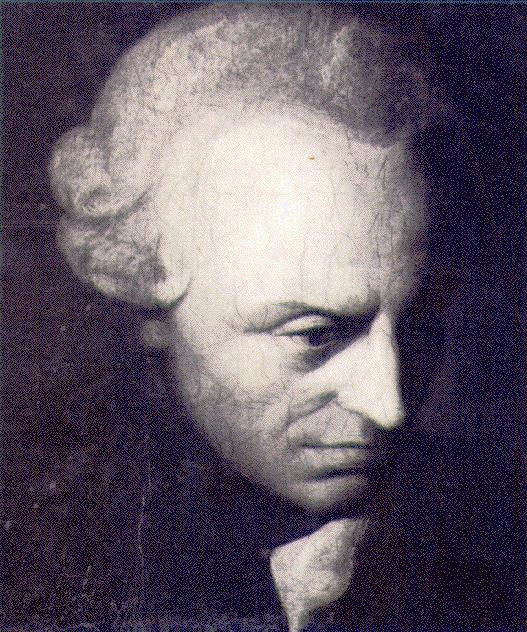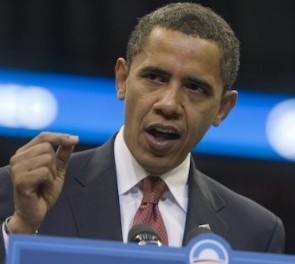
Devon, PA. At the root of American and, indeed, western public life rests a fundamental assumption: the specific is dangerous, the particular a menace, the exclusive “unfair.” Local government is a recipe for injustice; local customs are benighted; local attachments are “clannish” and violent; local economies are inefficient, and their defenders “protectionist.” These items lead to more expansive ones directed against the particularities intrinsic to authority: religion endangers public order because it makes specific claims about the identity of truth and goodness; families oppress, because they make specific claims about the role of individual persons; and above all nations and nation-states confine the moral imaginations of their people and consequently serve as the necessary ingredients for war.
In our present “global” and “information” age, we might be surprised to learn it was Immanuel Kant, in 1795, who promised the union of all peoples in federated states under one world order would bequeath perpetual peace to future generations. The lowering or emasculation of national borders through free trade would lead to interdependence, he promised, and interdependence would simply make war too costly for everyone. When one nation depends upon another for some important good-food, shoes, oil-and the other nation has a reciprocal dependence, their enlightened self interest should suffice to teach them that war can result in nothing more than shooting themselves in either the right or left foot. Yes, enlightened reason, led by the divine instructress of economics, would guide all mankind to recognize its natural common interest, and history would end in a global light of rational solidarity.
In his extensive reflection, Kant, apparently, never imagined that countries with vital resources, like oil, might use their ownership of such essentials as a weapon. He never envisioned that “interdependence” is always uneven and, for a time, almost any state can get another in a strangle hold. He never imagined it might simply not be in a nation’s interest-enlightened or “benighted”-to surrender its sovereignty and the customs and beliefs that sovereignty protects in order to cast itself in faith upon the benevolence of the reason of the entire world. And yet, rational consideration tells us that this program of peace is in fact a guarantee of war and of the most outrageous forms of coercion. Such a system, should it ever come briefly into being, could not outlast the defection of its least assimilated members. Either those members will be, consequently, coerced by a present war on behalf of future peace, or the dominant members in such a union will be coerced into surrendering still further the particularities of custom or the privileges of fortune in the name of “equality,” or-as the kids and activists are always saying-“fairness.” Combined, such coercion begets the need for further coercion and perpetual peace is set on tracks of infinite regress, no more approachable than the horizon.
The role of free trade in this unworkable and misleading scheme for world government and world peace is, naturally, a great one. Often, those who claim to favor free markets and private property lie to themselves and others in suggesting that free trade policies lead to greater economic freedom and general prosperity, even if they stop short of claiming such policies may secure “peace in our time.” Such persons ignore that the most immediate consequence is simply a concentration of wealth and a loss of freedom regarding how wealth can be created and who can create it. Furthermore, they fail to appreciate that free trade not only leads to increasing international economic entanglement-it creates occasion and need for military entanglements abroad as well. If the global aspirations of free trade result in various local wars, they also do not help to preserve and expand a free society, but rather bring into being the conditions that require a huge managerial state apparatus whose perpetual military projections of force abroad are matched only by the administration of welfare and wealth-redistribution programs at home. The supposed conservative voice in defense of “free markets” and “free trade” thus harmonizes with and comes quickly to require the modern liberal voice of socialized welfare; both of them together create the conditions for endemic and far-flung warfare.
The Old Right’s condemnation of the welfare/warfare state cannot be repeated enough. And so, I owe the New York Times editorial page my gratitude for providing yet one more occasion for a jeremiad against the evils of free trade and the monolithic administrative ambitions of the modern state. The Times warns the Obama administration that free trade will drive the global “recovery” from our present recession; its editors never consider that free trade is one cause of that recession and that it pullulates others, such as an exponential growth in Americans’ dependence on easy credit to sustain irresponsible, vain, and gluttonous habits.
In “The Empire of Addiction, Part I,” I offer a brief but systematic account of the collusion in which American “conservatives” and liberals have engaged to create a world order and an American order dependent upon the pernicious trinity of welfare, warfare, and credit. That essay concludes, as shall this one, thus:
the big stick of the Bush Administration followed by the soft looks of the Obama administration are doing their best not to save American prosperity. They seek only to delay our nation’s hard confrontation with the fact that we make almost nothing, spend many times more than we can afford, and have, as a whole, no vision of how a truly flourishing domestic economy should be formed. The warfare of the Bush administration came in tandem with the massive expansion of the role and size of the federal government; its encouragement of easy credit in housing came as just one “welfare” scheme whose debt-creation perpetuated the need for military adventures abroad. To an equal degree, the acceleration of government enlargement under Obama appears like a promissory note: as it increases our dependence on foreign manufactures and foreign capital to keep prices low and our society in some strained sense “solvent,” it sets the stage for wars to protect “American interests” in the decades to come.












Great post. I think that the Kantian monadic self needs to be public enemy #1 for all “traditionalists.” Its universalizing nature is the enemy to all lovers of the local, the particular, the distinct. We should instead embrace Charles Taylor’s “situated self” or what I call the “historical self” (see http://apoxonbothyourhouses.blogspot.com/2009/01/two-dogmas-of-liberalism-or-how-to-win.html).
Your post is well worth reading; I hope others will follow the link.
Who would have thought that more than one hundred years after the neo-Thomist critiques of Kant began to appear they would be more necessary than ever? Kant, unlike beer, is not the cause of and solution to all our problems; he is, however, the spokesmodel for all the rotten ideas of modernity (does that mean all modern ideas are rotten? . . . no, I guess not). Therefore, for purposes of discursive clarity it is invariable illuminating to return to his work as if to the source — even in so polemically cursory away as does my post.
But, to dampen a delightful suggestion of how to understand the self (and its sources), why should we invent a nomenclature for man? Let’s allow Aristotle to carry the day: man is by nature a political animal. Such a definition is adequate, so long as one understands what it means. Among the things it means, as you indicate, is that there are no selves un-situated in a particular place and time, and that consequently that self is always historical. But, again, I wonder if such terminology risks opening up a portal to a false argumentation: that the situated self somehow stands in constrast or in at least distinction from some other kind of existent self. Calling man the political animal, to my mind, nips such temptations to invent the impossible in the bud.
It is interesting to me that most of the writers I admire urge a return to Aristotle in some way. It is helpful to review why Aristotle was abandoned in the first place which was the result of modern philosophy’s banishment of teleology which provided the foundation for Aristotle’s physics and ethics. Today however there is great hope in that teleology has once again become respectable in philosophical circles thanks to the work of Ruth Millikan (and others). We are just waiting for someone to produce a modern Nicomachean Ethics using Millikan’s teleology as a foundation (see http://apoxonbothyourhouses.blogspot.com/2009/02/on-human-virtue-on-my-entry-of-january.html for a tentative step in that direction).
Empedocles: The argument you make about function in your post is not so different from Aristotle’s, except that Aristotle places the excellence of the human being, and of the capacity to choose well in all the areas in which we make choices, at the center of his account. Thus it is virtue that serves as a measure of a “culture’s values” and not vice versa.
It is indeed helpful to review how bad the reasons for abandoning Aristotle were in the first place.
We should have listened to Alexander Hamilton.
Mark, the account I was sketching could easily be applied in that way. Practical reason surely has a function in Millikan’s sense, and its virtues would still be that which allows practical reason to perform its function of achieving our conscious ends.
Phillippa Foote was moving in such a direction in Natural Goodness, but was never able to put it all together.
(I wish we could edit our posts as I would have just added this comment to the one above.)
Would that “politics”, as practiced by the Great Federal Godhead were politic. Anyone not a tad chary of “Internationalism” and “Globalism” espoused by a nation with what appears now to be a nascent counterfeit currency , a thousand military bases around the globe and a “defense” expenditure….that we know of….. of around 25% of it’s entire budget would seem to invite another chapter in Freedom by Gunpoint. Still, somebody made $32 Billion in Iraq in non-sequential, unmarked bills without the tawdry obligations of a receipt and so perhaps there is money to be made in the Freebootery of Imperial Adventure yet.
This is the great sad irony of the West’s supposed Defeat of Marxism….it has become what it opposed and decided that quantity is just as good as quality…..if not more better.
The worst part about the early death of Hamilton at the hands of the scheming Burr is that he was not preserved to work his Federal Banking Charms to the point that we would have gotten it out of our system by now given its rather sordid propensities to second the old Forrest maxim of war in a Banking Sense: “Them that gets thar the firstest with the mostest wins.”
The quietude at the recent Treasury Auction may have upset the globalista gunners to an extent that if we see the “Basket of Currencies” approved as the Reserve Currency we will see two things occur simultaneously:
1. Chinese disquiet at a historic scale.
2. Globalism decried simultaneously on MSNBC and Fox.
ahhhh, the disappointments of a life of either-or.
Kant was a European. America’s prosperity was built on the bedrock of high tariffs, and land so affordable and abundant it drove up the value of free labor in states with few or no slaves.
A few folks become billionaires collecting the markup on cheap imports.
America’s dependence on oil imports is a function of being entirely too dependent on automobiles.
Comments are closed.